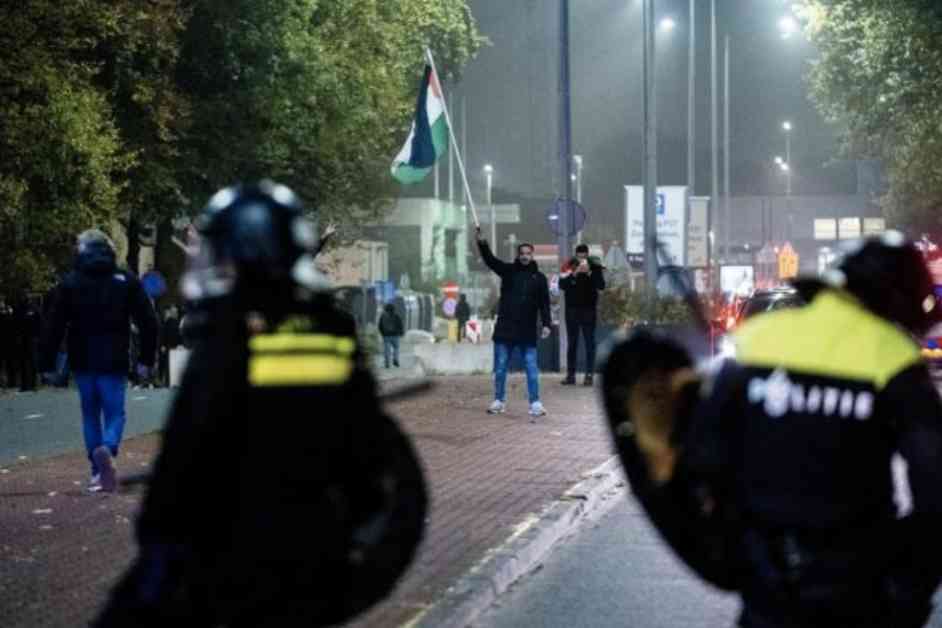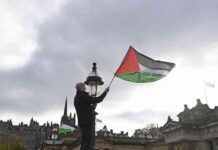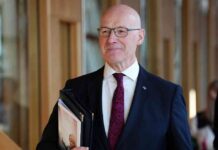Police in Amsterdam have taken action against more than a hundred individuals who participated in a pro-Palestine demonstration that was banned by Mayor Femke Halsema. The ban on all demonstrations was put in place following violent altercations between supporters of the Israeli football club Maccabi Tel Aviv and locals in the city.
The ban on demonstrations was initially extended until Thursday morning, with the municipality, Amsterdam police, and the public prosecutor’s office working together to enforce the restrictions. The Israeli ambassador to the Netherlands reported that 2000 Israelis were flown back home from Amsterdam due to the recent incidents of violence.
Troubling reports emerged of Maccabi fans displaying aggressive behavior, including tearing down Palestinian flags, shouting anti-Arab slurs, and engaging in physical altercations with taxi drivers. Videos shared on social media captured Israeli supporters making offensive chants about the war in Palestine and disrupting a moment of silence for the victims of the Valencia flooding before a Europa League football match.
The situation escalated when protesters gathered in Amsterdam to express their support for Palestine, leading to clashes with law enforcement officers. Videos circulating online showed individuals chanting “free, free Palestine” and being forcibly removed by police. Despite efforts by the protest organizers to challenge the ban in court, the injunction was upheld, and arrests were made.
Meanwhile, in Paris, authorities are preparing for a France-Israel football match by deploying a significant number of officers and stadium staff to ensure public safety during the event. The heightened security measures reflect growing concerns over potential unrest and violence surrounding international sporting events.
The incidents in Amsterdam serve as a stark reminder of the complexities surrounding the Israeli-Palestinian conflict and the challenges of navigating political tensions within a diverse and interconnected world. As communities grapple with issues of discrimination, nationalism, and freedom of speech, the need for dialogue, understanding, and peaceful resolution remains paramount.












